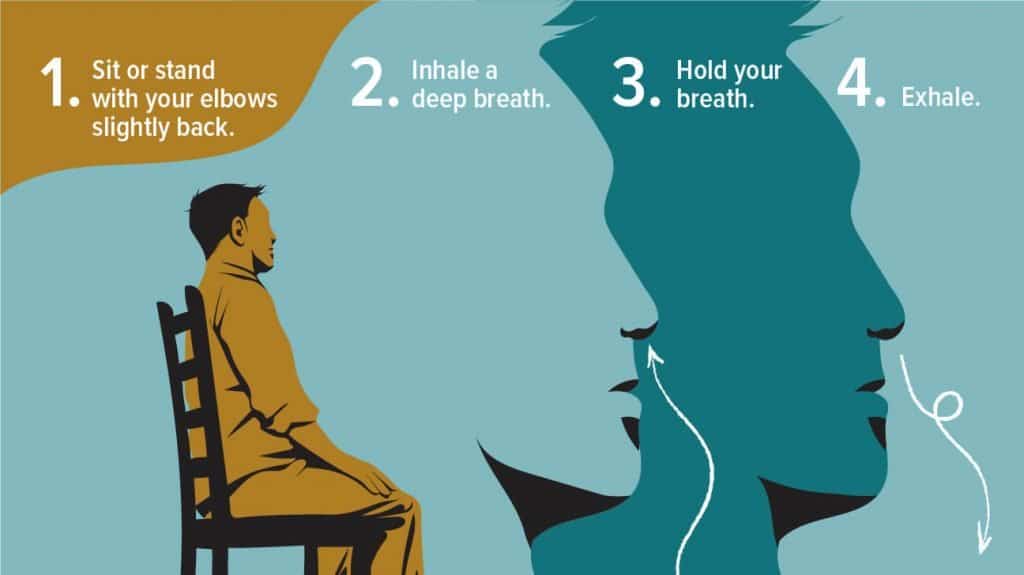As someone striving to find balance in life and build inner peace, meditation and mindfulness should be your top priorities. These ancient practices are designed to help you learn about yourself, get in touch with your true nature, and work on your daily tranquility and harmony. But, there are different forms and shapes of practicing meditation and mindfulness. And, mindful writing and meditative journaling are just one of those forms.
The truth is, when you combine your love for meditation with a pen and paper, a lot of positive things can happen. You’ll be able to learn more about yourself, reflect on how you feel, and continue to grow. But, if you’re not sure how to practice mindful writing and meditative journaling, just keep reading.
We’ve put together a list of 8 best tips for mindful writing and meditative journaling that you’ll find below. Let’s take a closer look.
1. Prepare the Setting
As you already know, where we are can often influence how we feel. This is especially true for mediation beginners who still haven’t mastered the art of using their minds to travel to a place of peace and serenity.
Therefore, you should try and create the best setting for your meditative journaling. It should include:
– a comfortable place to sit or lay down
– peaceful surroundings
– inspirational details and decoration
– mandalas
– quietness
It could be just the desk in your room, but try to make it as appealing and comfortable as possible. Alternatively, you can write laying on the grass in our garden, or sitting on a park bench.
Explore your options and find a setting that helps you focus and truly immerse in the process of mindful writing and meditative journaling.
2. Do Breathing Exercises
Mindful writing and meditative journaling require peace of mind. This is why you can’t just do it in the middle of a busy day by sitting at a desk and starting to write.
No, you need proper preparation.
The basic and best thing to do is to allow your mind and body to calm down:
– sit at your designated writing space
– just breathe for a couple of minutes and listen to your heartbeats slow down
– do breathing exercises to relax and find your focus
Only once you’ve done this proper preparation can you start writing.
It’s always a good idea to give your mind and body enough time to slow down, get a sense of the relaxing vibrations, and fully commit to the process of mindful writing and meditative journaling.
3. Learn to Remove Distractions
It’s not easy to clear your mind and stay focused only on the thoughts you want to pay attention to. Our minds are wonderful things, and we can’t fully control them.
That’s why it will happen that you’ll start thinking about irrelevant things such as your dog barking, or your phone ringing.
This is only natural and there are several ways for you to deal with this:
– write down the thoughts that are distracting you to process them and get over them
– take a break from writing and do some mindfulness exercises to clear your mind
– do breathing exercises to regain focus
Just like with meditation, you’ll face these distractions and challenges in meditative journaling as well. Practice removing them until you master this skill completely.
4. Focus on The Process, Not The Result
The point of meditative journaling isn’t to write a masterpiece or to show off your superb writing skills. The point is to transfer your emotions, ideas, or struggles from your mind onto a piece of paper.
However, so many of us struggle to let go and enjoy the process. Instead, people tend to:
– focus too much on how they’re writing
– overthink the structure, grammar, or spelling
– go back to review what they’ve written over and over again
“Remember, this is not a school writing assignment. Nobody is going to grade you or give you negative feedback. So, forget about the rules and what you should be writing. Just write from your heart” says Estelle Liotard, a passionate meditator, and a professional essay writer.
5. Be Completely Honest
Another barrier that you simply need to overcome is self-censorship. Many people who are trying out mindful writing and meditative journaling are struggling to be completely honest with themselves.
But, if you’re sugar-coding or keeping anything inside yourself instead of putting it to paper, your writing effort will be in vain.
Therefore, make sure to:
– understand you’re the only one seeing these written thoughts
– there’s nothing to be ashamed of
– the only way for this to be successful is for you to stop self-censorship
Being this honest towards yourself will help you improve your self-esteem and learn to love yourself just the way you are.
6. Rejoice About the Future
When you’re writing as a form of meditation, you are dealing with all kinds of different emotions and ideas.
There can be some negative thoughts that need processing. There can be some long-forgotten problems that are resurfacing.
But, there should always be room for happiness and positivity.
This is why you should never forget to rejoice about the future. Write about:
– the happy moments you’re looking forward to
– your inner growth and new positive feelings
– the plans that make you happy
– everything you love about your life
– your personal or professional goals
It is very important, if not crucial, to remember to rejoice. If we only focus on the negative things, even when we’re trying to solve them, we’ll soon start feeling lost and empty inside.
That means you constantly need to work on finding and defining the beautiful little things that make you happy.
7. Process How You Feel
Did it ever happen to you that you start feeling a certain way, but you aren’t sure why? And, you can’t even define this emotion?
This is because we are influenced by so many things in our daily lives, that we can’t manage to process it all.
In a single day, you could see a poor person on the street, your boss can yell at you, and you could lose your car keys. All of this will culminate in a certain moment and you won’t be able to find your way out of it.
Luckily, meditative journaling can help you process your emotions, step by step. Here’s what you’ll be able to do:
– write all the events, news, or ideas that impacted your day
– think about the different emotions that each of the above caused you to feel
– try to understand how it made you feel altogether
– discuss each of the events with yourself, talking about the details that strike you the most
If you talk to yourself honestly and pay attention to how your day went, you’ll be able to find the cause of your fear, anxiety, worry, and other emotions you don’t like that much.
8. Write Intuitively
Finally, there’s one last piece of advice that you should try and embrace.
Write intuitively.
What does that mean? It means that you have the power to:
– write without following any rules
– write without sticking to a certain form or structure
– let yourself write from the heart
If you allow yourself to write as freely and as creatively as you like, the results of your mindful writing and meditative journaling will be far better.
Final Thoughts
If you love meditating, you’ll love meditative journaling. It’s a rewarding process full of ups and downs, that will help you get to know yourself better and learn how to keep growing every day.
Use the tips we’ve shared above to practice mindful writing and meditative journaling the right way and enjoy the benefits of this spiritual practice.

















